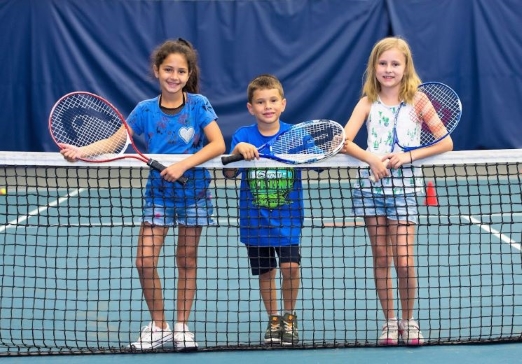The Importance of Physical Education Programs for Homeschooled Kids
In recent years, homeschooling has gained popularity as a flexible and personalized approach to education. While it offers numerous benefits—such as tailored curricula and the ability to learn at one’s own pace—it can sometimes lack the structured physical activity that traditional schools provide. This is where the importance of Physical Education (PE) programs become paramount for homeschooled children. Engaging in regular physical activity not only promotes health but also fosters social skills, emotional well-being, and lifelong habits of fitness.
Physical Health and Development
One of the most obvious benefits of PE programs is the promotion of physical health. Regular physical activity is essential for children’s growth and development. It helps build strong bones and muscles, improves cardiovascular health, and supports a healthy weight. For homeschooled children who may have fewer opportunities for structured play, enrolling in a PE program can ensure they meet the recommended guidelines for physical activity—at least 60 minutes of moderate to vigorous activity each day.
As fall sets in, the cooler weather can make outdoor play less appealing, especially with shorter days. PE programs can provide a structured environment for children to stay active, even when outdoor activities become less frequent. Establishing a routine of regular exercise during these months is crucial for maintaining physical health.
Socialization Opportunities
Homeschooling, while offering flexibility, can sometimes limit social interaction with peers. PE programs present a unique opportunity for homeschooled children to meet and interact with other kids in a structured environment. Engaging in group activities, sports, or games fosters teamwork, communication skills, and the ability to work collaboratively toward common goals.
The socialization that occurs in these settings can help alleviate feelings of isolation that some homeschooled children may experience. Building friendships and learning to navigate social dynamics are critical life skills that can enhance their overall educational experience.
Mental Health Benefits
The benefits of physical activity extend beyond physical health. Regular exercise has been shown to improve mood, reduce anxiety, and enhance cognitive function. For homeschooled children, who may spend a significant amount of time in academic pursuits, integrating physical education can help balance their emotional well-being.
As fall weather often brings a shift in mood due to shorter days and less sunlight, engaging in physical activity becomes even more vital. Exercise releases endorphins, which can counteract seasonal affective tendencies, boosting mood and reducing stress.
Instilling Healthy Habits
Participating in a structured PE program can instill lifelong habits of fitness. By exposing children to a variety of sports and physical activities, they can discover what they enjoy most, encouraging them to stay active beyond their homeschooling years.
When children learn to appreciate physical activity at a young age, they are more likely to carry these habits into adulthood. This not only benefits their physical health but also contributes to a balanced lifestyle, helping them cope with stress and maintain overall well-being, particularly during the changing seasons.
Educational Component of PE
Physical education is not just about moving; it also includes learning about health, nutrition, and the benefits of an active lifestyle. PE programs can offer workshops and lessons on topics such as healthy eating, the importance of exercise, and the physiological benefits of physical activity.
This educational aspect empowers children to make informed choices about their health as they grow. Understanding the “why” behind staying active encourages a more profound commitment to maintaining a healthy lifestyle, especially as colder months can lead to less activity if not consciously countered.
Goal Setting and Achievement
Finally, PE programs provide a unique environment for children to set and achieve personal goals. Whether it’s mastering a new skill, completing a challenging workout, or improving in a specific sport, the sense of accomplishment that comes from these achievements can boost confidence and self-esteem.
As homeschooled children learn to set and reach fitness goals, they develop a growth mindset—an invaluable trait that applies not only to physical challenges but also to academic pursuits and life in general.
Jump into our Homeschool PE Program in Corpus Christi
Ready to have your kids leap into something new? Join us at Corpus Christi Athletic Club where our Homeschool PE Program offers a dynamic and engaging way to enrich your child’s education through physical activity. Designed to provide homeschooled children ages 4 and up with a well-rounded, structured physical education experience, our physical education program incorporates a variety of activities including volleyball, track, yoga, pickleball, archery, and kids’ Zumba, to ensure that every session is both exciting and educational for your child.

